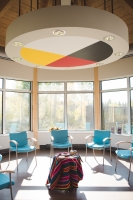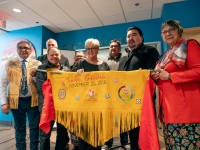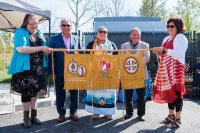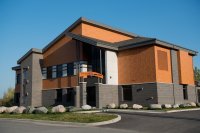
Family violence is a problematic issue in many communities across the country including in the Cree Nation. The problem is driven by a multitude of factors including but not limited to drug and alcohol abuse and addiction, social challenges, community demographics, systemic barriers to women’s full participation in society and the workforce, overcrowded conditions and unresolved historical trauma. It is also generally known through the country that Aboriginal women are significantly more likely to experience spousal assault and more severe forms of violence than non-Aboriginal women.
Partnering to Address the Issue
The Department of Justice and Correctional Services actively partners with the Cree Women of Eeyou Istchee Association (CWEIA) and the Cree Board of Health and Social Services of James Bay (CBHSSJB), as well as the Eeyou Eenou Police Force (EEPF) and Cree communities to address domestic and family violence through a variety of initiatives.
Report on Conjugal Violence in Eeyou Istchee
It is a common sense perspective that the more conjugal violence is experienced in a given community or region, the greater will be the need for programs, services and infrastructure to address the outcomes of this violence, including that of emergency women’s shelters.
In 2013, the DOJCS commissioned the Report on Conjugal Violence in Eeyou Istchee (available upon request) to gather data and insight on conjugal violence and its impact on women in Eeyou Istchee, and to assist in justifying an investment in emergency women’s shelters in the Cree Nation.
Researched and prepared by Michael Chettleburgh and recognized Canadian family violence and shelter operations expert Brenda Combs of Astwood Strategy Corporation, the report recommended the construction of one coastal and one inland shelter (of 18-beds each) for women/children experiencing conjugal and related violence, as an alternative to sending them to shelters in the south.
Two Shelters in Eeyou Istchee
The Waskaganish and Waswanipi women’s shelters provide women and children of Eeyou Istchee with a safe roof, staffed with people who speak their own language, and access to support programs adapted to their culture.
Since the design of such shelters is essential to their success, stakeholders, frontline workers, Elders and clients were asked to provide input into them. As shown in the concept drawings below, the design and structure of the shelters reflect Cree cultural elements and values, as shown in the teepee-like entrances and program area.







